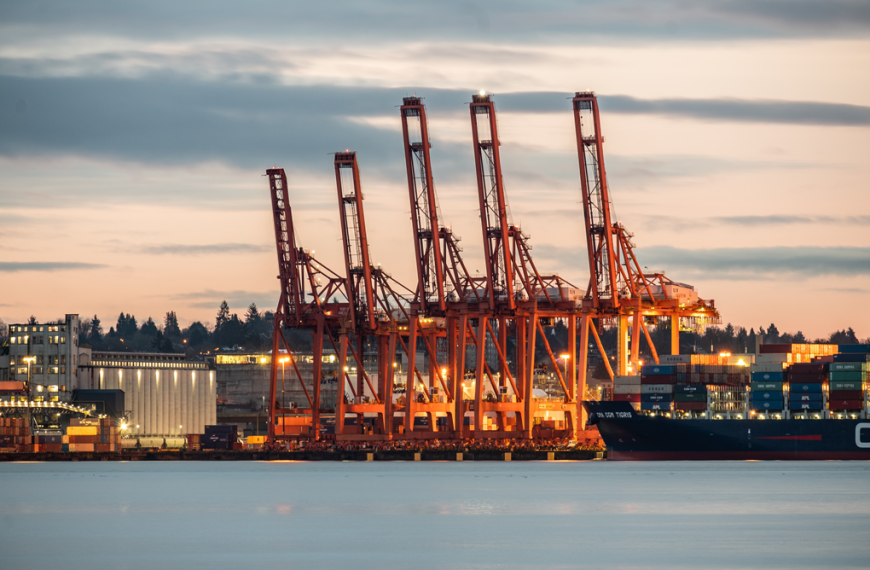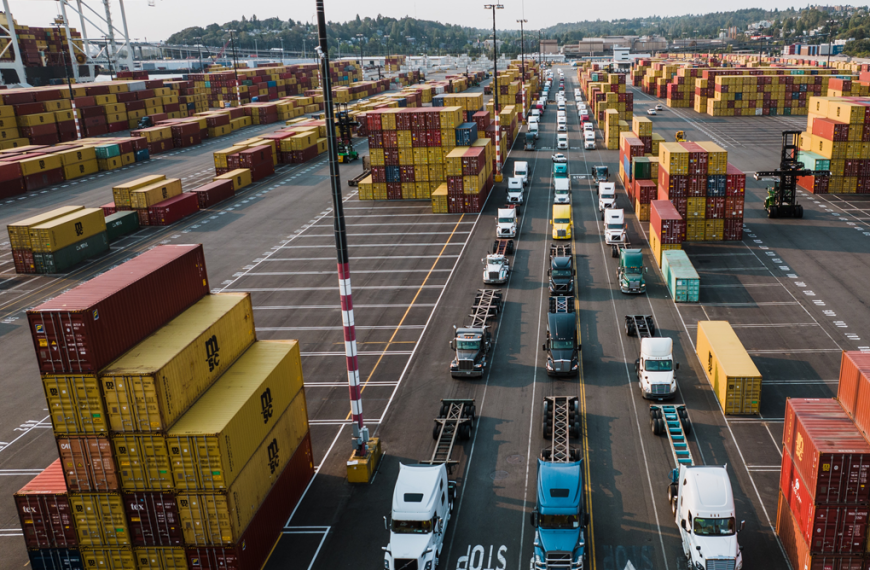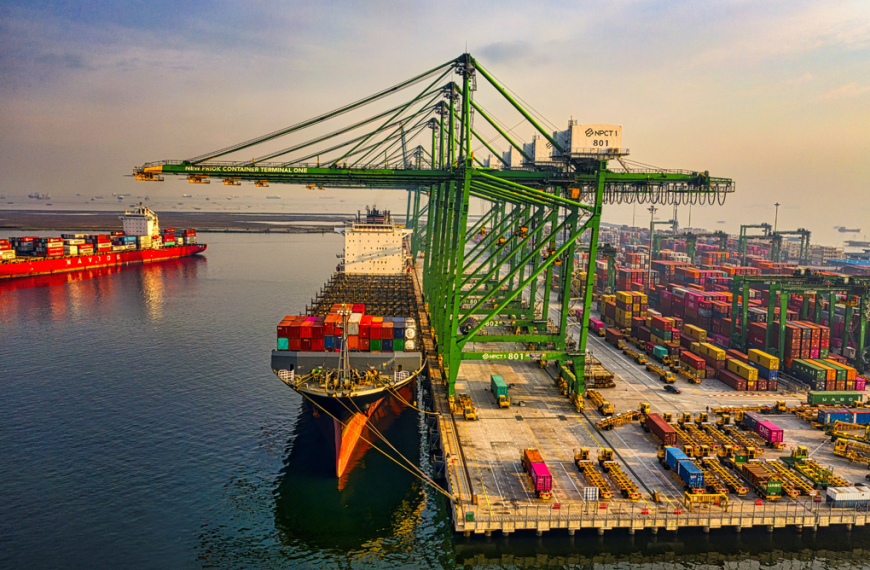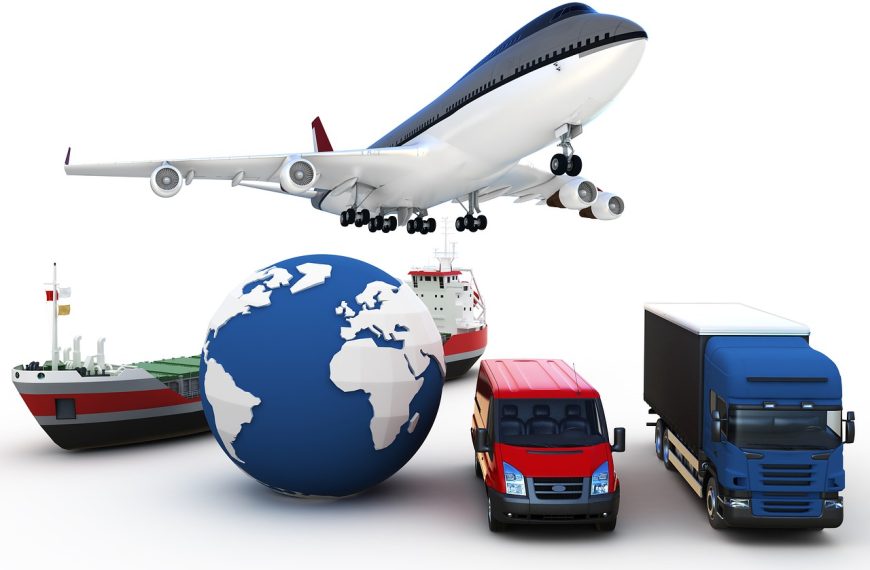Discover the Top 10 Challenges Freight Forwarders are Facing Today, from capacity constraints to technological disruption and rising costs.
Freight forwarding is an integral part of the global logistics industry, and it plays a crucial role in ensuring the seamless movement of goods from one place to another. However, despite its importance, the freight forwarding industry is facing several challenges today that are making it increasingly difficult for companies to operate efficiently. In this article, we will explore the top 10 challenges that freight forwarders are facing today, with a specific focus on the challenges faced by air and ocean freight forwarders.
- Major Challenges Freight Forwarders Face Today
- Air and Ocean Freight Forwarders Challenges
- Frequently Asked Questions (FAQs)

Major Challenges Freight Forwarders Face Today
1. Rising Costs
One of the most significant challenges faced by freight forwarders today is rising costs. Freight forwarding companies are facing increasing costs across the board, including fuel costs, labor costs, and infrastructure costs. These rising costs are putting pressure on companies to find ways to cut costs while still providing high-quality services to their clients.
2. Changing Regulations
Another major challenge facing freight forwarders today is changing regulations. Freight forwarding companies need to stay up-to-date with the latest regulations and compliance requirements to avoid penalties and ensure smooth operations. However, keeping track of the constantly changing regulations can be a daunting task, especially for smaller companies with limited resources.
3. Increasing Competition
Freight forwarding is a highly competitive industry, and companies are facing increasing competition from both established players and new entrants. This competition is putting pressure on companies to differentiate themselves from their competitors by offering innovative solutions and superior services.
4. Security Concerns
Freight forwarding companies are also facing increasing security concerns, especially in the wake of terrorist attacks and other security threats. Companies need to ensure the security of their cargo throughout the entire supply chain, from the point of origin to the final destination.
5. Lack of Visibility
Another challenge facing freight forwarders is the lack of visibility into the supply chain. Many companies are still using manual processes to manage their supply chain, which can result in delays, errors, and other issues. Companies need to invest in technology solutions that provide real-time visibility into their supply chain to improve efficiency and reduce costs.
6. Capacity Constraints
Freight forwarders are also facing capacity constraints, especially during peak shipping periods. Companies need to find ways to increase their capacity to meet the demands of their clients, without sacrificing quality or increasing costs.
7. Environmental Concerns
Freight forwarding is a significant contributor to greenhouse gas emissions, and companies are facing increasing pressure to reduce their environmental impact. Companies need to find ways to reduce their emissions and adopt more sustainable practices to meet the demands of environmentally conscious clients.
8. Technological Disruption
The freight forwarding industry is undergoing a significant technological disruption, with new solutions emerging that promise to transform the industry. Companies need to stay up-to-date with the latest technological trends and invest in technology solutions that can help them stay competitive.
9. Talent Shortage
Freight forwarding companies are also facing a talent shortage, especially in areas such as data analysis and logistics management. Companies need to invest in training and development programs to attract and retain top talent.
10. Customer Expectations
Finally, freight forwarders are facing increasing pressure to meet the expectations of their customers. Customers are demanding faster delivery times, more flexible services, and greater transparency into the supply chain. Companies need to find ways to meet these expectations while still maintaining profitability.
11. Political Challenges

1. Trade Wars
One of the most significant political challenges facing freight forwarders is trade wars. The imposition of tariffs, trade restrictions, and sanctions on goods can disrupt supply chains and increase costs for companies. Freight forwarders must find ways to navigate these challenges while still providing high-quality services to their clients.
2. Customs Regulations
Customs regulations are another political challenge faced by freight forwarders. The rules and requirements for importing and exporting goods can be complex and vary by country. Compliance is crucial to avoiding penalties and ensuring smooth operations, and companies need to invest in staying up-to-date with the latest regulations.
3. Political Instability
Political instability in certain regions can pose challenges for freight forwarders. Civil unrest, terrorist threats, and other factors can disrupt supply chains and impact the safety of cargo and personnel. Freight forwarders must be prepared to navigate these challenges while keeping their employees and cargo safe.
4. Brexit
The UK’s exit from the European Union has created challenges for freight forwarders involved in trade between the UK and EU. The changes in customs regulations, tariffs, and border procedures have impacted supply chains, and companies must adapt to remain competitive.
5. Corruption
Corruption is a significant challenge in many parts of the world, and freight forwarders must be vigilant to avoid engaging in corrupt practices. The risk of bribery, extortion, and other illegal activities can impact the reputation and profitability of companies.
6. International Relations
The relationship between countries can impact trade and supply chains. Changes in political alliances, international agreements, and diplomatic relations can impact the flow of goods and services. Freight forwarders must be prepared to navigate these changes and adapt their operations accordingly.
7. Immigration Policies
Immigration policies can also impact freight forwarders, particularly those involved in air freight. Changes in visa requirements and travel restrictions can impact the ability of personnel to travel and perform their duties, impacting the efficiency of supply chains.
8. Intellectual Property Rights
Intellectual property rights are another political challenge facing freight forwarders. The theft of intellectual property, such as patents, trademarks, and copyrights, can impact the competitiveness of companies and disrupt supply chains. Freight forwarders must be vigilant to avoid involvement in illegal activities related to intellectual property.
9. Economic Sanctions
Economic sanctions are another political challenge faced by freight forwarders. The imposition of sanctions on countries can impact the ability of companies to conduct business and disrupt supply chains. Freight forwarders must be prepared to navigate these challenges while complying with international regulations.
10. Climate Policies
Finally, climate policies are becoming increasingly important to freight forwarders. The impact of global warming and climate change is leading to increased regulation and pressure on companies to adopt more sustainable practices. Freight forwarders must find ways to reduce their carbon footprint and adopt more environmentally friendly practices.
| Challenge | Description |
|---|---|
| Trade Wars | Imposition of tariffs, trade restrictions, and sanctions on goods can disrupt supply chains and increase costs. |
| Customs Regulations | The rules and requirements for importing and exporting goods can be complex and vary by country. Compliance is crucial to avoiding penalties and ensuring smooth operations. |
| Political Instability | Civil unrest, terrorist threats, and other factors can disrupt supply chains and impact the safety of cargo and personnel. Companies must be prepared to navigate these challenges while keeping their employees and cargo safe. |
| Brexit | Changes in customs regulations, tariffs, and border procedures have impacted supply chains, and companies must adapt to remain competitive. |
| Corruption | Corruption is a significant challenge in many parts of the world, and freight forwarders must be vigilant to avoid engaging in corrupt practices. |
| International Relations | Changes in political alliances, international agreements, and diplomatic relations can impact the flow of goods and services. Freight forwarders must be prepared to navigate these changes and adapt their operations accordingly. |
| Immigration Policies | Changes in visa requirements and travel restrictions can impact the ability of personnel to travel and perform their duties, impacting the efficiency of supply chains. |
| Intellectual Property Rights | The theft of intellectual property can impact the competitiveness of companies and disrupt supply chains. Freight forwarders must be vigilant to avoid involvement in illegal activities related to intellectual property. |
| Economic Sanctions | The imposition of sanctions on countries can impact the ability of companies to conduct business and disrupt supply chains. Freight forwarders must be prepared to navigate these challenges while complying with international regulations. |
| Climate Policies | The impact of global warming and climate change is leading to increased regulation and pressure on companies to adopt more sustainable practices. Freight forwarders must find ways to reduce their carbon footprint and adopt more environmentally friendly practices. |

Air and Ocean Freight Forwarders Challenges
1. Capacity Constraints
One of the most significant challenges facing air and ocean freight forwarders is capacity constraints. With the global demand for goods increasing, the industry is struggling to keep up with the demand for space. As a result, companies need to find ways to maximize the use of available space while keeping costs low.
2. Rising Costs
Another major challenge faced by air and ocean freight forwarders is rising costs. Fuel costs, labor costs, and infrastructure costs continue to rise, putting pressure on companies to find ways to cut costs while still providing high-quality services to their clients.
3. Security Concerns
Security concerns are another challenge faced by air and ocean freight forwarders. Cargo theft, piracy, and terrorism are all risks that companies must mitigate. Companies need to ensure the security of their cargo throughout the entire supply chain, from the point of origin to the final destination.
4. Changing Regulations
Regulations are continually changing, and it is a challenge for air and ocean freight forwarders to keep up with the latest regulations and compliance requirements. Compliance is crucial to avoiding penalties and ensuring smooth operations, and companies need to invest in staying up-to-date.
5. Lack of Visibility
The lack of visibility into the supply chain is another challenge facing air and ocean freight forwarders. Many companies are still using manual processes to manage their supply chain, leading to delays, errors, and other issues. Companies need to invest in technology solutions that provide real-time visibility into their supply chain to improve efficiency and reduce costs.
6. Environmental Concerns
Environmental concerns are becoming increasingly important to customers, and air and ocean freight forwarders must adapt. The industry is a significant contributor to greenhouse gas emissions, and companies are facing increasing pressure to reduce their environmental impact. Companies need to find ways to reduce their emissions and adopt more sustainable practices to meet the demands of environmentally conscious clients.
7. Customer Expectations
Customer expectations are continually evolving, and air and ocean freight forwarders must meet these expectations to remain competitive. Customers expect faster delivery times, more flexible services, and greater transparency into the supply chain. Companies need to find ways to meet these expectations while still maintaining profitability.
8. Technological Disruption
The freight forwarding industry is undergoing a significant technological disruption, and air and ocean freight forwarders must stay up-to-date. New solutions are emerging that promise to transform the industry, and companies need to invest in technology solutions that can help them stay competitive.
9. Talent Shortage
Air and ocean freight forwarders are facing a talent shortage, particularly in areas such as data analysis and logistics management. Companies need to invest in training and development programs to attract and retain top talent.
10. Competition
Finally, air and ocean freight forwarders face competition from both established players and new entrants. This competition is putting pressure on companies to differentiate themselves by offering innovative solutions and superior services.
In conclusion, air and ocean freight forwarders face several challenges in today’s global logistics industry. Companies need to find ways to adapt to these challenges to remain competitive and profitable. By investing in technology, talent, and sustainable practices, air and ocean freight forwarders can overcome these challenges and continue to provide high-quality services to their clients.
Frequently Asked Questions (FAQs)
What are the challenges facing the freight forwarding industry?
The freight forwarding industry is facing various challenges, including increasing competition, rising costs, and changing customer demands. Other challenges include a shortage of skilled labor, regulatory changes, and the need to adopt new technologies to remain competitive. Companies must also navigate political and economic instability, customs regulations, and environmental regulations, among other challenges.
What are the limitations of freight forwarders?
Freight forwarders face several limitations, including their dependence on other parties in the supply chain, such as carriers and customs brokers. They may also have limited control over the movement of goods, and may face legal liability for cargo damage or loss. In addition, freight forwarders may not have the resources to invest in new technologies, leaving them vulnerable to more technologically advanced competitors.
What are the factors influencing freight forwarding?
Several factors influence the freight forwarding industry, including global trade patterns, economic growth, and advances in technology. Other factors include changes in regulations, geopolitical events, and environmental concerns. Freight forwarders must also respond to changes in customer demands, such as faster delivery times and increased visibility into the supply chain.
What is the main challenge for airfreight?
The main challenge for airfreight is its high cost compared to other modes of transport, such as sea freight. Airfreight also has limited capacity, which can lead to delays and higher prices during peak seasons. Freight forwarders must balance the speed of airfreight with its cost, and may need to explore alternative modes of transport, such as sea-air or rail-air solutions, to remain competitive. Additionally, airfreight faces increasing regulatory pressures to reduce its carbon footprint, which may impact its operations and cost structure.
















